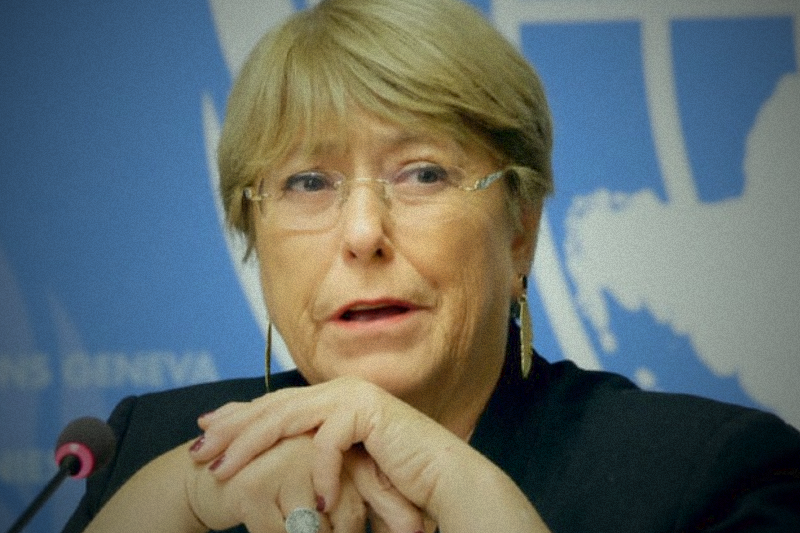
Facing criticism over her China visit, UNHRC chief to decline second term
The United Nations’ human rights council (UNHRC) chief, Michelle Bachelet has announced her decision to step down and not seek a second term citing “personal reasons”. Her decision comes after weeks of speculation when she attracted huge criticism from rights activists and west leaders and politicians following her recent China trip when she visited Xinjiang province.
It was in 2018 when Michelle Bachelet had assumed the office of UN High Commissioner for Human Rights.
Bachelet made the announcement through a statement on Twitter. She wrote, “Today, I briefed @UN_HRC, opening my last session as High Commissioner. I will not be seeking a second term for personal reasons. It is time to go back to Chile & be with family. I urge States to identify common ground to achieve solutions to our shared human rights challenges.”
Today, I briefed @UN_HRC, opening my last session as High Commissioner. I will not be seeking a second term for personal reasons. It is time to go back to Chile & be with family. I urge States to identify common ground to achieve solutions to our shared human rights challenges.
— Michelle Bachelet (@mbachelet) June 13, 2022
Announcement amid criticism over China visit
Bachelet’s announcement as she faced huge criticism, mounting pressure over her following her recent statement on the human rights situation in China. During her recent six day visit to China she had conducted in a “closed loop” system due to Covid restrictions. It is however, not clear if this is the reason behind her not seeking another term.
Bachelet and her office have been facing huge criticism over her last month’s visit to China, particularly Xinjiang province where rights groups have alleged that Chinese authorities have committed genocide against the Uyghur Muslim minority group.
Responding to criticism that she had not done enough during the visit, Bachelet said while she was in China she had “also raised concerns regarding the human rights situation of the Uyghur and other predominantly Muslim minorities in Xinjiang, including broad arbitrary detention and patterns of abuse, both in the VETC system and in other detention facilities”. She added, “In addition, I raised human rights concerns in the Tibet and Hong Kong regions and discussed possible follow-up actions with my office.”




